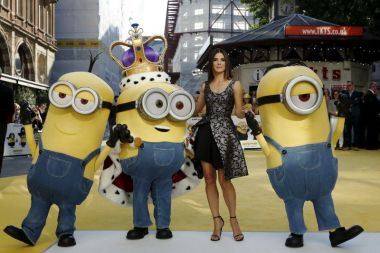Minion toys uttering swear words? Parents say yes they do, but McDonald's denies it

Minions—the bright yellow, pill-shaped cartoon characters produced by Illumination Entertainment—are very popular nowadays, starring in their own movie. The animated characters are so popular that the fastfood chain McDonald's has produced toys featuring the minions. But can these innocent-looking creatures be teaching children how to swear?
Some parents have been complaining that McDonald's minion toys, particularly the one depicting a caveman, are uttering expletives.
Mother Alexis Hernandez, for instance, recently bought her five-year-old daughter, Julissa, a McDonald's Happy Meal containing the minion toy.
Alexis was surprised at what she heard after her young daughter opened the meal and played with the minion toy in the back seat of their car.
The mother said she heard the minion toy utter the expletive "What The F—!" followed by "All be damned."
In a statement, McDonald's acknowledged that it received complaints from "a very small number of customers" about the caveman minion toy uttering words that sound like expletives.
The Oak Brook-based fast food company, however, said that the toys are not making nonsense words, not profanities.
The gibberish sounds coming out of the minion toys, according to McDonald's are, "para la bukay," "hahaha" and "eh eh."
"Our goal at McDonald's is to serve up food and fun for our valued customers, and we're glad to have the Minions on board," the company said in its statement.
Lisa McComb, a spokeswoman for McDonald's, said the global fastfood chain has no plans of pulling the minion toy out of distribution despite the controversy.
So how exactly did this controversy happen? Experts like Dr. Steven Novella, a neurologist at the Yale School of Medicine, explained that it is natural for human beings to interpret real language out of nonsense sounds.
"The brain tries to find a pattern match, even when just receiving noise, and it is good at pattern recognition," Novella explained.











